Beyond Buzzwords: Organic is Regenerative
Written by Elizabeth Tobey
You may have heard the term “regenerative” a lot lately in agricultural circles or on food labels at the grocery store. The term has caught the attention of consumers interested in the impact of their food choices, and farmers and policymakers looking for ways to adapt to or mitigate climate change. We are at a unique moment to promote transformative farming practices, but it’s critical to understand what we’re rooting for.
Although the term ‘regenerative’ has gained widespread traction, definitions of the term vary widely. Unfortunately, in some cases, it is used to describe conventional agriculture that adopts a single conservation practice, such as no-till, and labels it regenerative. Changing one practice and calling it regenerative drastically misses the mark of what truly whole-system, regionally-adapted, thoughtfully-practiced organic and regenerative agriculture can be.
Organic farmers have been using regenerative organic practices since long before the terms “organic” or “regenerative” were coined. Yet, as a wave of climate-change awareness sweeps over decision-makers in food and agriculture policy, organic farming is often overlooked as a climate solution.
Organic agriculture is grounded in principles that collaborate with nature, foster healthy soil, and contribute to clean water, biodiversity, and thriving farm communities; it encompasses the essence of holistic and regenerative farming. At OFRF, we recently embarked on a project to map the synergies between organic and regenerative agriculture practices and develop a messaging toolkit to help organic advocates explain how organic is regenerative. We found three key themes that come together to highlight the critical role that organic agriculture can play in creating a healthy future for people and the planet:
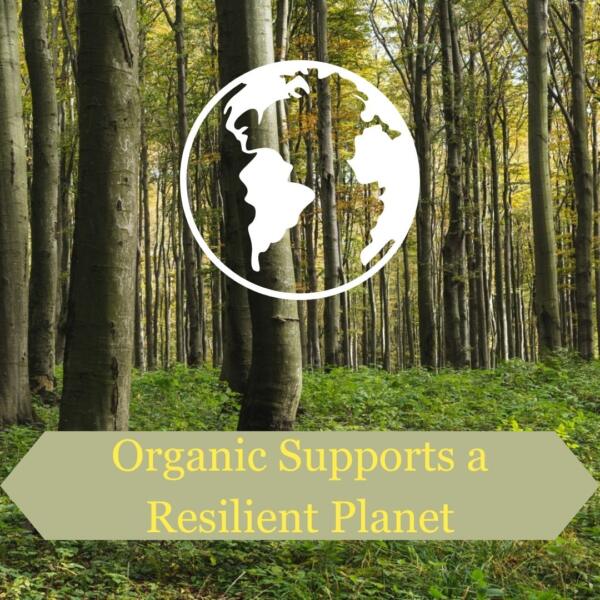
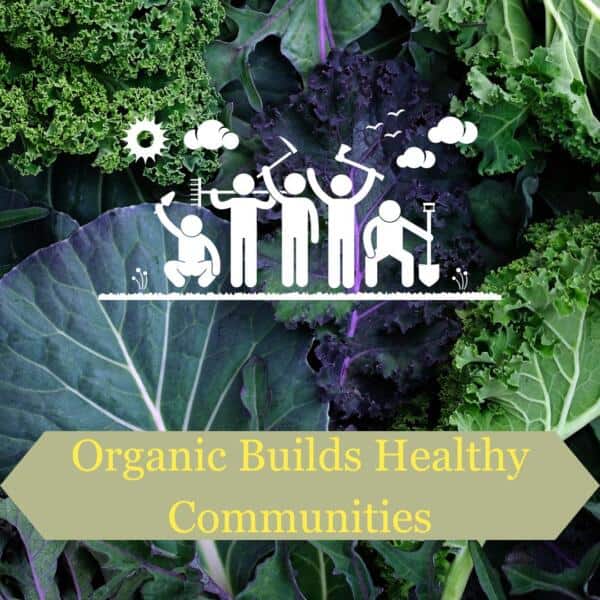
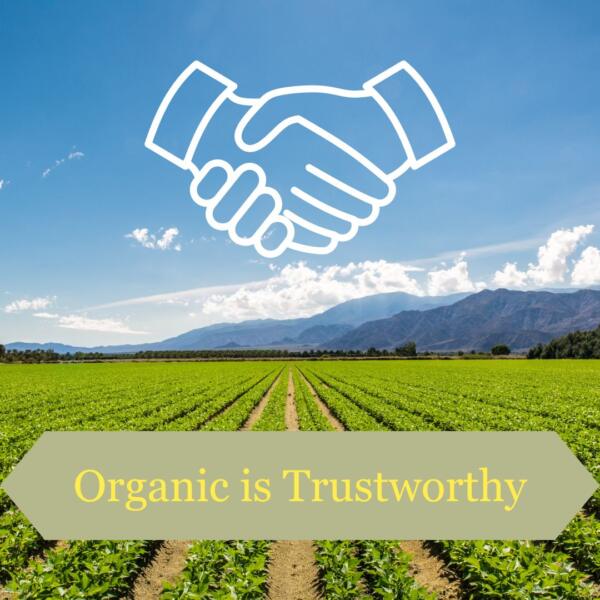
#1 Organic Agriculture Supports a Resilient Planet. It is…
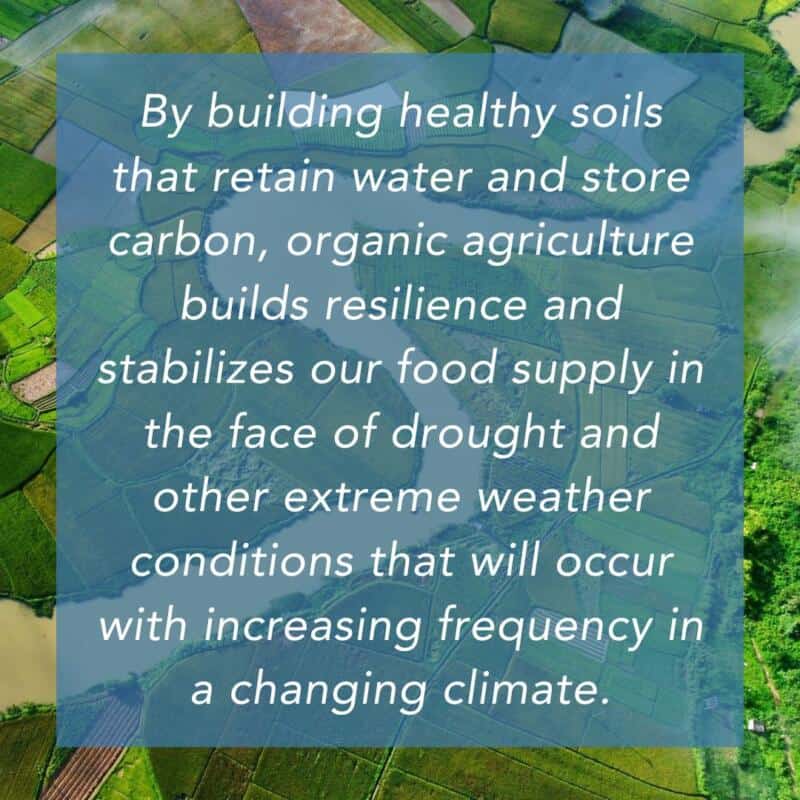
Climate-Friendly:
Nearly 90% of organic farmers use cover crops, which protect soil, help sequester carbon, and prevent erosion. Organic growers also lead the way in crop rotation, intercropping, and green manures, all of which are research-backed methods to improve resilience and increase fertility.
Healthy for Soils:
Maintaining and improving healthy soil is a core requirement of organic agriculture. The USDA National Organic Program mandates best conservation management practices, including diversified crop rotation, cover cropping, careful nutrient management, and other methods to protect or improve soil health.
Protective of Biodiversity:
Organic farmers are required to preserve and protect biodiversity and natural resources to replenish or maintain ecological balance on farms. Research has found that organically managed lands have higher rates of both species richness and abundance when compared to conventional cropping systems. Organic farming significantly increases populations of beneficial insects, birds, soil-dwelling organisms, mammals, reptiles, and plants.
Systems Focused:
Organic production emphasizes overall system health, including clean air, water and soil. The interaction of management practices is the primary concern, rather than any individual technique.
#2 Organic Agriculture Builds Healthy Communities. It is…
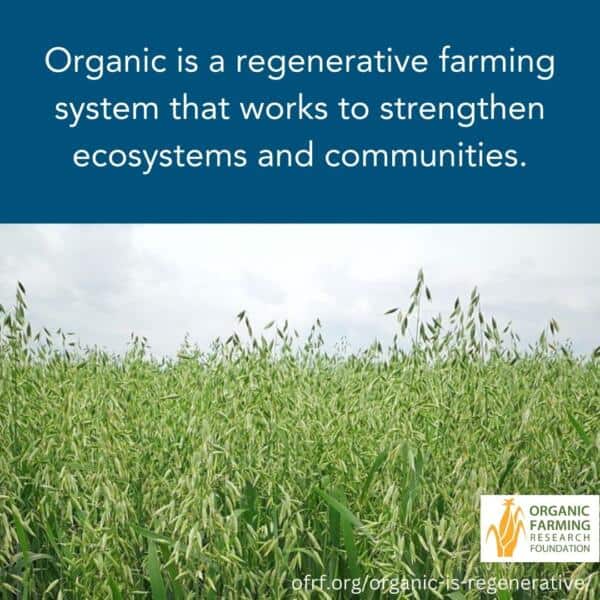
Good for the Economy:
Organic farms and businesses create jobs throughout the supply chain. In 2022, organic food sales in the United States broke through $60 billion for the first time. And in 2023, total organic sales (including organic non-food products) were a record $67.6 billion, according to the Organic Trade Association’s Organic Industry Survey. The organic sector is expected to remain stable or grow as generations who are conscious about health and the environment prioritize purchasing organic food for their families, especially their children.
Safer for Farmworkers and Rural Residents:
Organic farms rely on natural inputs, like compost and natural pesticides. Certifiers review all inputs organic farmers plan to use and conduct random tests to ensure no prohibited pesticides are used. These regulations protect farmers, farm workers, neighbors, and nearby waterways from exposure to toxic chemicals.
Better for People:
Pesticides are designed to be poisons. The properties that make them toxic to insects and weeds can also make them toxic to other forms of life, including people. Eating organic protects people from toxic pesticide and herbicide residue on food products.
Better for Animals:
The use of antibiotics and hormones is prohibited in organic production. Instead, organic producers must use holistic practices to maintain livestock health. Studies show that organic farms harbor fewer antibiotic-resistant microbes than their conventional counterparts, and organic meats are less likely to be contaminated with antibiotic-resistant bacteria than conventional meat products (another health benefit for consumers).
#3 Organic Agriculture is Trustworthy. It is…
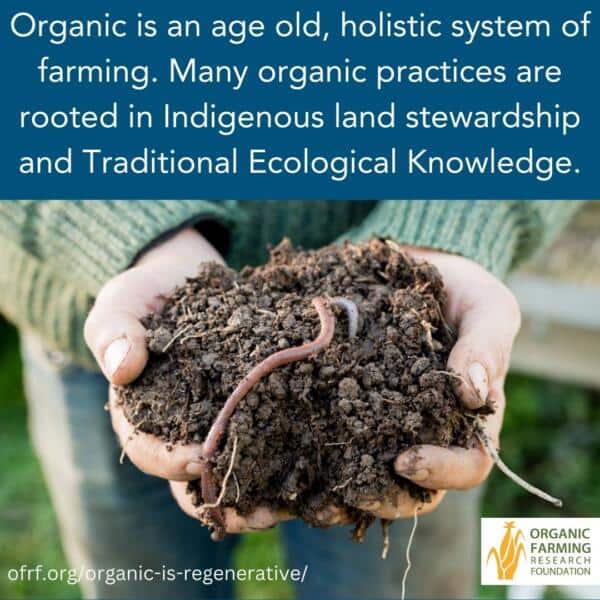
Third-Party Certified:
Organic farming has a legal definition, which makes it a solid tool for holding farmers and food producers accountable to sustainable practices and letting consumers know what they are supporting with their food purchases. To sell products labeled “organic,” farmers and food processors must undergo a rigorous certification process, which includes working with a USDA-accredited third-party certifier which ensures integrity and accountability.
Non-GMO:
Organic is THE choice for consumers wanting to avoid GMOs. Organic certification prohibits farmers from using genetically modified seed and requires practices that prevent contact of organic crops with GMOs.
Tried and True:
Organic farming is not new; many of the methods used in organic farming today have their roots in traditional ecological knowledge and Indigenous farming practices. The National Organic Program was created over 30 years ago, informed by decades of experience of farmers and ranchers, soil and plant scientists, food system workers, environmentalists, and consumers.
Evolving and Improving:
The standards are designed to be responsive to changing needs and continue to evolve. Organic agriculture may not be perfect, but there are built-in pathways for improvement.




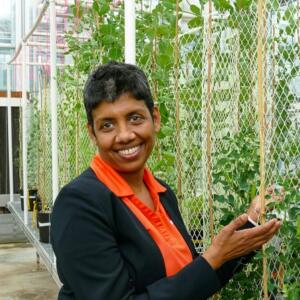
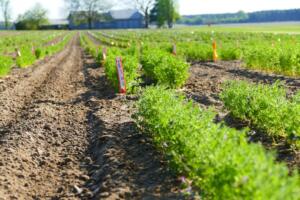 The project builds on a previous OREI grant that helped to identify varieties that worked well in organic crop rotations with sorghum. These varieties are now being evaluated to identify those with higher protein and sugar content, and better protein quality (measured both by digestibility and consumer preference). Dr. Thavarajah calls her approach “participatory breeding” that includes both consumers and farmers in the process. Interestingly,
The project builds on a previous OREI grant that helped to identify varieties that worked well in organic crop rotations with sorghum. These varieties are now being evaluated to identify those with higher protein and sugar content, and better protein quality (measured both by digestibility and consumer preference). Dr. Thavarajah calls her approach “participatory breeding” that includes both consumers and farmers in the process. Interestingly,